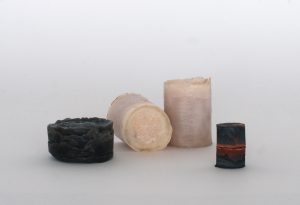2018 marks the 100th anniversary of The Representation of the People’s Act, brought in to reform the electoral system in Great Britain. Enfranchising women over 30 who met minimum property qualifications, the Act marked a key stage in the continuing journey towards universal suffrage.
Previewing on Thursday 8 March; International Women’s Day, and as part of Manchester’s Wonder Women Festival, this exhibition will include newly commissioned work by Ruth Barker and Hannah Leighton-Boyce. University of Salford Chancellor and ‘writer in residence’, the award-winning writer of fiction, poetry and plays Professor Jackie Kay MBE, will also write a commissioned poem inspired by the exhibition.
Paired by Castlefield Gallery, both women’s practice sees them undertake in-depth research projects with the artists often embedding themselves in communities to explore people and place. New work for this exhibition has been made during 2017 when Castlefield Gallery supported Ruth Barker (Glasgow) and Hannah Leighton-Boyce (Manchester) to undertake research residencies: Leighton-Boyce in Scotland with Glasgow Women’s Library, and Barker in Salford with the University of Salford and University of Salford Art Collection. Over the course of the year Barker and Leighton-Boyce have exchanged many ideas, thoughts and stories, in particular through conversation and letters. New works will premiere at Castlefield Gallery, Manchester, before touring in 2019 to Glasgow Women’s Library, and acquisition into our Art Collection.
Barker primarily works in performance and performative-writing, and has an on-going engagement with the ‘voice’. As a mother of two young children, she is clear that her recent experience of traumatic birth precedes but does not define her new body of work If this is the last thing that I say.
The central figure in If this is the last thing that I say is an ambiguous ‘pulley- woman’, a (ready-made) clothes pulley standing in for Barker’s absence. Alongside other works, this becomes a way for Barker to talk about her own mortality and an anxiety around motherhood, illness, physical vulnerability. Brutal world politics, and the economic conditions of contemporary Britain are, Barker feels, rapidly coalescing to render her publicly mute.
If this is the last thing that I say will come together through an assemblage of spoken word and sound, and will include wall based fabric works, and sculptural objects. A black fabric performance costume hung up to dry alongside an incomplete papier mâché female torso – suggesting nothing more than an ineffectual Winged Victory, while a ‘rug’ depicting a child’s drawing of the face of the Mesopotamian goddess Ishtar.
Children from Salford’s Clarendon Road Primary School will be recorded performing a sonic meditation inspired by the founder of “Deep Listening”, the late Pauline Oliveros, in the University of Salford’s Anechoic Chamber (a room designed to absorb all sound, rendering the room completely silent). The audio recording will be accompanied by the sound of Barker’s own breath works, infant babble, and performed monologue.
The rug work will be made using specialist production techniques at the University of Salford’s fibre workshop with artist assistant Alena Donely.
Leighton-Boyce explores historical narratives through site-specific actions, sculpture, drawing, sound and installation.
Leighton-Boyce describes her recent residency with Glasgow Women’s Library as having a profound effect on herself and her work. She states – “What I realised, or was reminded of on my last trip to Glasgow, was how recent personal experiences connect to the works I am developing; how trauma, loss, healing, reflection have informed decisions and conflated with the themes around the works. The library has been a place where I could feel vulnerable but also supported, where I could let thoughts settle amongst the books I was reading and items in the archive, and to reflect on these through different conversations”.
During her residency the welcoming embrace of the library especially struck Leighton-Boyce, and new works for the exhibition take inspiration from a large circular table centrally placed in Glasgow Women’s Library, one used for meetings, tea, lunch breaks and conversation.
For Leighton-Boyce the table was reminiscent of the round table in the house of Emmeline Pankhurst, the leader of the British suffragette movement (now the Pankhurst Centre), which was the birthplace of the Women’s Social and Political Union; and ‘The Table of Sentiments’, a domestic parlour table used by American suffragist Elizabeth Cady Stanton to draft ‘The Declaration of Women’s Rights’ at Seneca Falls in 1848.
Her new works will echo her experiences, specifically through her decision to work with salt, drawing on its inherent properties of healing, energy, and the charge of ‘coming together’ she experienced at Glasgow Women’s Library.
In developing her work, Leighton-Boyce entwines ideas and materials, echoing the physical imprints and human presence, the traces of labour and emotion. Her research led her to explore salt as a metaphor for both the physical extraction process of researching and the laboured mind, singular and collective; of form and fluidity, of resistance and preservation.
As with Barker’s work, historical narratives have informed and will be present in the new works. In reflecting on the multiple bodies that form the body of the archive and the importance of looking back, Leighton-Boyce references the story of Lot’s (unnamed) Wife who was turned to a pillar of salt because she defied the angels and turned to look back on the burning cities of Sodom and Gomorrah (Genesis 19:26). The powerful new body of salt-inspired and made works will signal the presence of the body; the blood, sweat and tears of the mind, body and soul.
A co-commissioned with Castlefield Gallery and University of Salford Art Collection. With special thanks to Clarendon Road Primary School.
Exhibition dates: Thursday 9 March – Sunday 29 April 2018
Exhibition opening hours: Wednesday – Sunday, 1pm – 6pm
Venue: Castlefield Gallery, 2 Hewitt Street, Manchester, M15 4GB
Admission: Free
Touring to Glasgow Women’s Library: 1 February – 23 March 2019 (Preview: 31 January 2019)
